#MusicAsResistance
Explore tagged Tumblr posts
Text
The Sinister Symphony: Unraveling the Nexus of Music and Political Propaganda
In this murky world, music becomes more than just a medium of artistic expression; it transforms into a potent weapon that can sway hearts, manipulate minds, and solidify the foundations of political control. With every note, composers and propagandists alike have woven tales of loyalty, nationalism, and dissent, leaving an indelible mark on the muniments of time.
I. The Power of Melody: Stirring Emotions and Shaping Minds
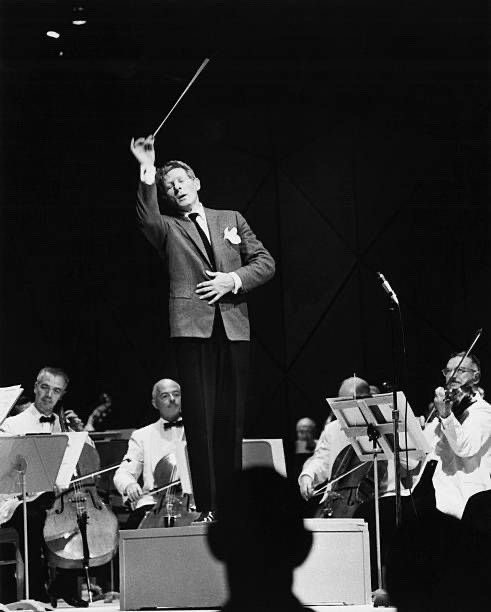
Music, with its ability to evoke emotions and touch the soul, has been harnessed by political leaders to sway the masses. Propagandists carefully select melodies that resonate with collective sentiments, using them as a conduit to deliver their messages. Whether it's the rousing anthems of patriotism or melancholic ballads of sacrifice, music can enchant minds and manipulate perceptions. For example
Nazi Germany's Propaganda Machine
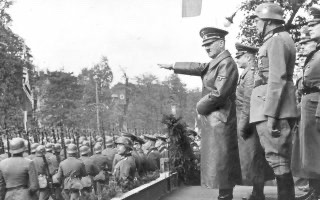
During the dark days of Nazi Germany, the Third Reich skillfully employed music to propagate their ideology. The infamous "Horst-Wessel-Lied" became the anthem of the Nazi Party, spreading its message of nationalism and anti-Semitic hatred. The orchestration of concerts and public performances ensured the dissemination of propaganda to the masses, leaving an indelible mark on history.
II. Musicians as Pawns: The Duality of Art and Politics
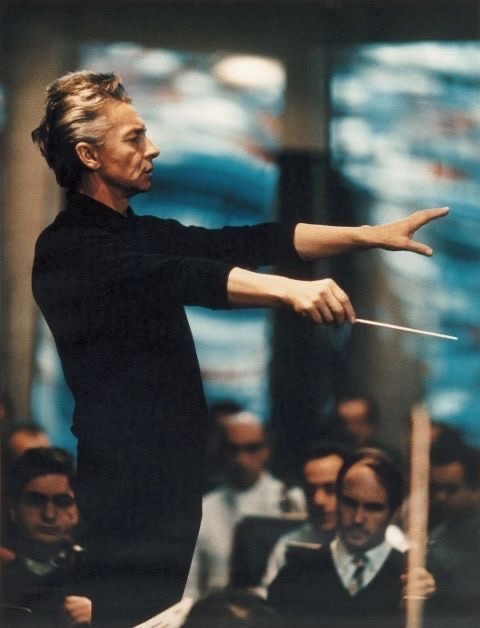
Artists, with their creative brilliance, often find themselves caught in the crossfire of political agendas. Music becomes a double-edged sword, providing an avenue for self-expression while potentially becoming a pawn for political manipulation.
THE SOVIET UNION’S CENSORSHIP OF DISSENT
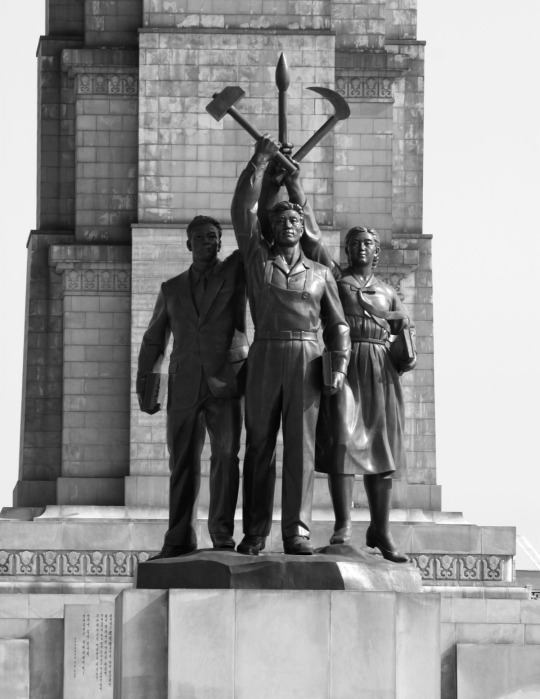
In the Soviet Union, musicians faced the pressure of conforming to the state's socialist realism principles. Those who deviated from the prescribed themes were censored or even persecuted. On the other hand, some artists found subtle ways to express dissent, embedding hidden meanings in their lyrics and compositions, attempting to circumvent the grip of political censorship.
III. Battle of Narratives: Music in Political Movements
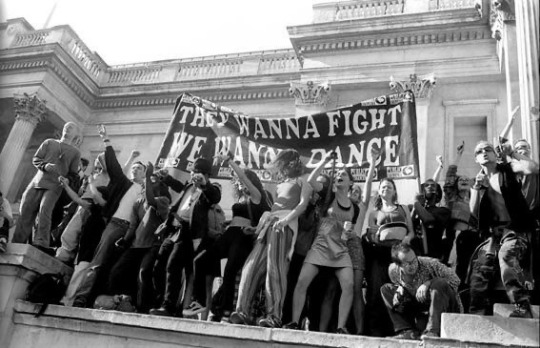
Political movements have harnessed music as a unifying force, igniting passion and inspiring change. From protests to revolutions, the anthems of resistance have amplified the voices of the oppressed and emboldened the fight against injustice.
The American Civil Rights Movement
The American Civil Rights Movement of the 1960s found strength in music. Songs like "We Shall Overcome" became the rallying cries for equality and justice. These musical expressions not only galvanized the movement but also inspired solidarity and resilience in the face of adversity.

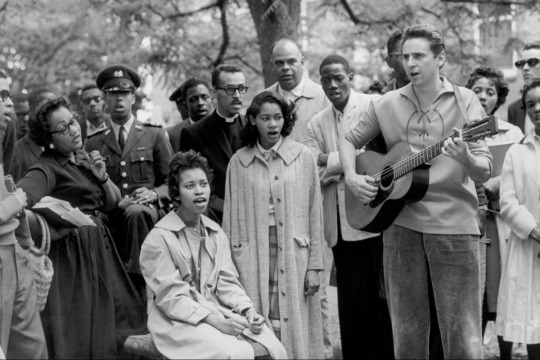
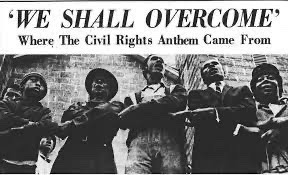
C O N C L U S I O N
As we venture deeper into the shadows of history, we encounter the haunting legacy of music entangled with political propaganda. Its undeniable power to sway emotions and shape minds has made it a potent weapon in the hands of manipulators throughout time.
Yet, we must also remember that music remains a reflection of our collective consciousness, capable of inspiring revolutions and giving voice to the silenced. As we tread this intricate tapestry of music and politics, let us be mindful of its duality and harness its potential to create a world where freedom of expression and human rights thrive.
@ivorytome
#music#propaganda#protestanthems#politicalnarratives#musicpolitics#PoliticalResistance#RevolutionaryMelodies#MusicAsResistance#PropagandaInfluence
7 notes
·
View notes
Text
The Resonance of Liberation: Music's Role in the Palestinian Struggle for Justice
by Melvin Earl Villaver, Jr., Ph.D. and William Vela, Ed.D.
In the face of widespread silence regarding the genocide of the Palestinian people, music and musicians resonate as the heartbeat of the movement, advocating for the end of settler colonialism, apartheid, land occupation, and calling for peace, justice, and a ceasefire from the Israeli nation-state. Music has long been a powerful tool for activism, conveying messages of resistance, unity, and hope. Within the Palestinian liberation movement, music plays a crucial role in raising awareness, fostering solidarity, and providing a cultural and emotional lens through which to understand the Palestinian experience, ultimately inspiring action. This essay explores the connection between music and the pro-Palestinian protest, highlighting significant contributions from various artists and the intersection of cultural and political movements that shape this narrative.
The tragic events of October 7, 2023, as depicted in Al Jazeera's “October 7” documentary, showcase the brutalities faced by both Israelis and Palestinians. The chaos and violence of that day underscore the dire need for voices advocating for peace and justice, and music serves as one of the most potent mediums for this advocacy. However, this war has been ongoing for seventy-six years, beginning with the first Nakba in 1948. Despite some of the recent music emerging after October 7th, a significant amount of it was created long before, as evidenced by the song "Freedom for Palestine" released in 2011 by OneWorld (OneWorld). This historical context enriches the narrative of musical activism, illustrating how artists have long used their platforms to advocate for Palestinian rights and resist oppression.
DJ CAPTBLY's playlist, "A Day Will Come: Free Palestine! From LA to Gaza, with love '24 ALLY Mix," exemplifies the transnational nature of musical activism. Featuring artists from around the world, this playlist underscores the urgency to end the genocide and occupation of Palestinian land. The diversity of genres within the playlist—from Hip Hop to folk—demonstrates music's ability to transcend boundaries and serve as a liberatory tool. The construction of playlists as a form of praxis and resistance is an age-old tradition, deeply rooted in the history of global Black musical genres, from the jazz music of Miriam Makeba and other artists of the South African anti-apartheid movement to the calls for resistance to police brutality in the American nation-state over the last 50 years of Hip Hop. Mixtapes, curated and passed from hand to hand, have always been a way for people to communicate, share their struggles, and unite in resistance. DJ CAPTBLY’s playlist aligns with this tradition, serving not only as a collection of songs, but as a powerful statement of solidarity and a call to action (DJ CAPTBLY).
The global music industry, particularly in the U.S., has often been silent on issues related to Palestine. However, artists from the Arab Hip Hop/Rap community have been vocal both before and after October 7th, addressing themes of resistance and solidarity. Grammy Award-winning MC Macklemore brought significant attention with his recent song "Hinds Hall," released on May 7, 2024, which garnered 35 million views on YouTube, a ranking of number seven on the US Digital Song Sales (Billboard) and a ranking of number three on the US R&B/Hip-Hop Digital Song Sales (Billboard). Yet, this focus risks overshadowing the ongoing efforts of artists like LowKey, GENOCIDE, Omar Esa, and Abe Batshon, who have long been creating powerful music about these issues (Macklemore; LowKey).
There is a growing call for mainstream artists to leverage their influence in advocating for the Palestinian cause, emphasizing the power of collaboration and visibility. Just as Beyoncé highlighted lesser-known Black country artists through her recent album "Cowboy Carter," mainstream artists like Macklemore are encouraged to partner with consistently vocal artists to amplify messages of resistance and solidarity. This collaborative approach can significantly enhance awareness and impact, drawing attention to the injustices faced by Palestinians. Additionally, prominent individuals across various sectors—such as high-ranking government officials, politicians, professors, doctors, and lawyers—are urged to use their platforms to raise awareness about these issues.
Eddy Mack's album “The Art of War,” released on February 23, 2024, donates its social media revenue to the Palestinian cause, exemplifying a creative and impactful way to support the movement. Notably, a major Chicago hip-hop studio with connections to Chance the Rapper and Juice WRLD produced the collaborative album. By spanning various genres, Mack's project highlights the longstanding history and current struggles of Palestinians, demonstrating how art can be a powerful tool for advocacy and change (Eddy Mack).
The lyrics from Eddy Mack's song "My People," featuring Jazlynn Q, poignantly capture the dire situation in Gaza and the resilience of the Palestinian people:
"Entire family wiped out
Babies getting burnt down
Gaza turned to nothing, but we tell them we don't back down
Hospitals, homes, and babies being burned down
We ask for freedom
For our people
Freedom
For our people"
These lyrics, along with the broader efforts of artists and influential figures, illustrate how powerful messages of resistance and solidarity can be conveyed through music and other forms of creative expression.
Notably, most pro-Palestinian music has been produced by male artists, with few contributions from women and other marginalized perspectives. Desiree Dawson's song "A Day Will Come," released on November 23, 2023, stands out as one of the first from an American queer woman artist (Dawson). Highlighting these voices is crucial for a comprehensive understanding of the movement and its diverse support base. Music has always been a powerful medium for resistance and liberation, offering a space for freedom, dreaming, and envisioning a just future. This spirit of dreaming and resistance is why DJ CAPTBLY named their playlist "A Day Will Come: Free Palestine! From LA to Gaza, with Love '24 ALLY Mix." By curating a diverse array of artists and genres, DJ CAPTBLY's playlist embodies the collective yearning for justice and freedom through the universal language of music.
The revolutionary nature of Black music has historically embodied messages of freedom and resistance, serving as a powerful tool for cross-racial coalition building and solidarity. The American drum set, for example, was inspired by Black American drummers incorporating elements from Chinese opera heard on opera boats along the Mississippi River (Hartigan). Contemporary collaborations, such as those between Bruno Mars and Anderson .Paak, reflect the roots of radical Afro-Asian partnerships. Musical superstar H.E.R., vocal about her identity as a Black American and Filipino woman, embedded this politic in her dedication to the George Floyd uprisings of 2020 with her Grammy Award-winning song "I Can’t Breathe" (H.E.R.). This legacy of coalition building is deeply rooted in the tradition of the 1955 Bandung Conference, which aimed at decolonization and solidarity between African and Asian states.
Global conflicts and diasporic struggles reveal interconnected narratives of oppression, resistance, and political turmoil. Alex Lubin's "Geographies of Liberation" explores how African American diasporic imagination has been influenced by Jewish diasporic politics and Zionism, drawing historical parallels between the experiences of African Americans and Palestinians (Lubin 47). This shared struggle highlights the interconnectedness of various oppressed communities, including Black, Brown, and Indigenous people in the U.S. The Israeli-Palestinian conflict has intensified, affecting civilians and involving regional players. Similarly, the war in Yemen has caused a severe humanitarian crisis. The Sudan internal conflict, particularly in the Democratic Republic of the Congo, stems from the aftermath of the 1994 Rwandan genocide, leading to a prolonged and complex war involving multiple regional actors. These present-day conflicts underscore the global nature of oppression and the need for international solidarity in addressing such crises. Music, as both a historical and contemporary tool, has played a crucial role in raising awareness and fostering solidarity around these issues, amplifying voices and uniting communities in the fight for justice.
Despite this powerful legacy, the silence from the music industry and higher education institutions regarding Palestinian issues prompts critical reflection. This silence reflects broader geopolitical agendas and investments that stifle essential conversations. Critiquing this silence can encourage more artists and academics to engage with these topics, fostering a more inclusive and active dialogue. In the face of widespread silence, it is evident that music serves not only as a tool for awareness and solidarity but also as a powerful call to action in the pursuit of justice and liberation. Macklemore's lyrics in "Hind's Hall" poignantly capture this sentiment:
"Undecided
You can't twist the truth, the people out here united
Never be defeated when freedom's on the horizon
Yet the music industry's quiet, complicit in their platform of silence (hey, woo)
What happened to the artist? What d'you got to say?
If I was on a label, you could drop me today."
These lyrics underscore the complicity of silence and the urgent need for artists to use their platforms to advocate for truth and justice.
Music has always been a powerful tool for activism, and its role in the Palestinian liberation movement is no exception. From DJ CAPTBLY's playlist to the contributions of artists like Low-Key and Desiree Dawson, music fosters solidarity and raises awareness about the ongoing struggles of Palestinians. We must embrace a human-centered praxis that strives for the liberation of all oppressed people worldwide, highlighting the shared experiences of displacement and marginalization. These overlapping diasporas remind us of our interconnectedness. As we continue to support the Palestinian cause, let us remember the power of music as a tool for liberation and a call to action for continued solidarity and activism. Together, through the universal language of music, we can envision a hopeful future and work towards a world where justice and peace prevail.
Stream DJ CAPTBLY's playlist, "A Day Will Come: Free Palestine! From LA to Gaza, with love '24 ALLY Mix," here: https://open.spotify.com/playlist/5NKrgYsDBKXkP3CzLCxUic?si=c71c1ca8f24d4507
Works Cited
Billboard. "US Digital Song Sales." Billboard, 28 May 2023, www.billboard.com/charts/digital-song-sales.
Billboard. "US R&B/Hip-Hop Digital Song Sales." Billboard, 28 May 2024, www.billboard.com/charts/r-and-b-hip-hop-digital-song-sales.
DJ CAPTBLY. "A Day Will Come: Free Palestine! From LA to Gaza, with love '24 ALLY Mix." Spotify, https://open.spotify.com/playlist/5NKrgYsDBKXkP3CzLCxUic?si=c71c1ca8f24d4507. Accessed 28 May 2024.
Dawson, Desirée. “A Day Will Come.” Bandcamp, 28 Mar. 2024, https://desiree-dawson.bandcamp.com/track/a-day-will-come. Accessed 28 May 2024.
Eddy Mack, featuring Jazlynn Q. "My People." Art of the War, 2024.
Hartigan, Royal. "The American Drum Set: Black Musicians and Chinese Opera along the Mississippi River." Essay in Ho, Fred Wei-han, and Bill Mullen, Afro Asia: Revolutionary Political and Cultural Connections Between African Americans and Asian Americans. Durham: Duke University Press, 2008. Print.
H.E.R. "I Can't Breathe." I Can't Breathe, RCA Records, 19 June 2020.
LowKey. "Obama Nation." Soundtrack to the Struggle, 2011.
Lubin, Alex. Geographies of Liberation: The Making of an Afro-Arab Political Imaginary. 1st ed., The University of North Carolina Press, 2014.
Macklemore. "Hind's Hall." Hind's Hall, Bendo, 6 May 2024.
OneWorld. "Freedom for Palestine." Freedom for Palestine, 3 July 2011.
#PalestinianLiberation#MusicForJustice#EndApartheid#FreePalestine#ProtestMusic#HumanRights#Solidarity#Activism#DJCAPTBLY#Macklemore#EddyMack#DesireeDawson#LowKey#Resistance#Apartheid#Nakba#JusticeForPalestine#CulturalResistance#Freedom#Gaza#EndOccupation#ArtistsForPalestine#BlackLivesMatter#GeorgeFloyd#BandungSpirit#GlobalSolidarity#AntiColonialism#ProPalestinian#PalestineWillBeFree#MusicAsResistance
1 note
·
View note
Photo

"Compañeros fallen in the struggle— ever onward to victory! Don't go looking for my grave For you won't find it. My hands are those that go In other's hands that are firing My voice is that which is shouting My dream, follows And know that I only die If you give up For those who die in combat l Live on in every compañero For those who die in combat Life on in every...compañero." (Poem found in pocket of student killed when U.S.-backed National Guard of El Salvador massacred a university protest) Charlie Haden + Carla Bley: The Ballad of the Fallen (ECM Records, 1983). 13 years after releasing "Liberation Music Orchestra", Charlie Haden and Carla Bley continue to lift up the voices of the oppressed and those who have given their lives resisting colonialism and fascism around the world. The album contains interpretations of powerful, Revolutionary songs from the Spanish Civil War, El Salvador, Portugal, and Chile, backed by Carla Bley's creative arrangements for a large ensemble that includes legends like Don Cherry, Paul Motian, and Dewey Redman. #charliehaden #carlabley #doncherry #freejazz #jazz #revolutionarymusic #resist #protestmusic #avantgardejazz #vinyl #musicasresistance #politicalmusic #politicaljazz #onmyturntable #cratedigging #nowspinning #nowplaying #nofoodjustwax (at Third Eye Records)
#politicaljazz#onmyturntable#politicalmusic#jazz#doncherry#protestmusic#nowspinning#nofoodjustwax#carlabley#vinyl#resist#cratedigging#nowplaying#charliehaden#musicasresistance#avantgardejazz#revolutionarymusic#freejazz
1 note
·
View note
Text
✊🏿🎙🎶#ArtIsAWeapon @djlindsey's @sonosradio @blackisblackshow, episode 4 "The Message of Resistance" is available to listen on @mixcloud (link in her BIO).
Reposted from @djlindsey I spoke with @blackbookmedia_ about @blackisblackshow @sonosradio @negroclashnyc and made a little playlist too! Link in bio!

#DJLindsey #BlackIsBlack
#BlackMusic #MusicAsResistance #SocialJustice #SonosRadio #MusicIsLife
https://www.instagram.com/p/CO-jW2Fgmov/?utm_medium=share_sheet
0 notes